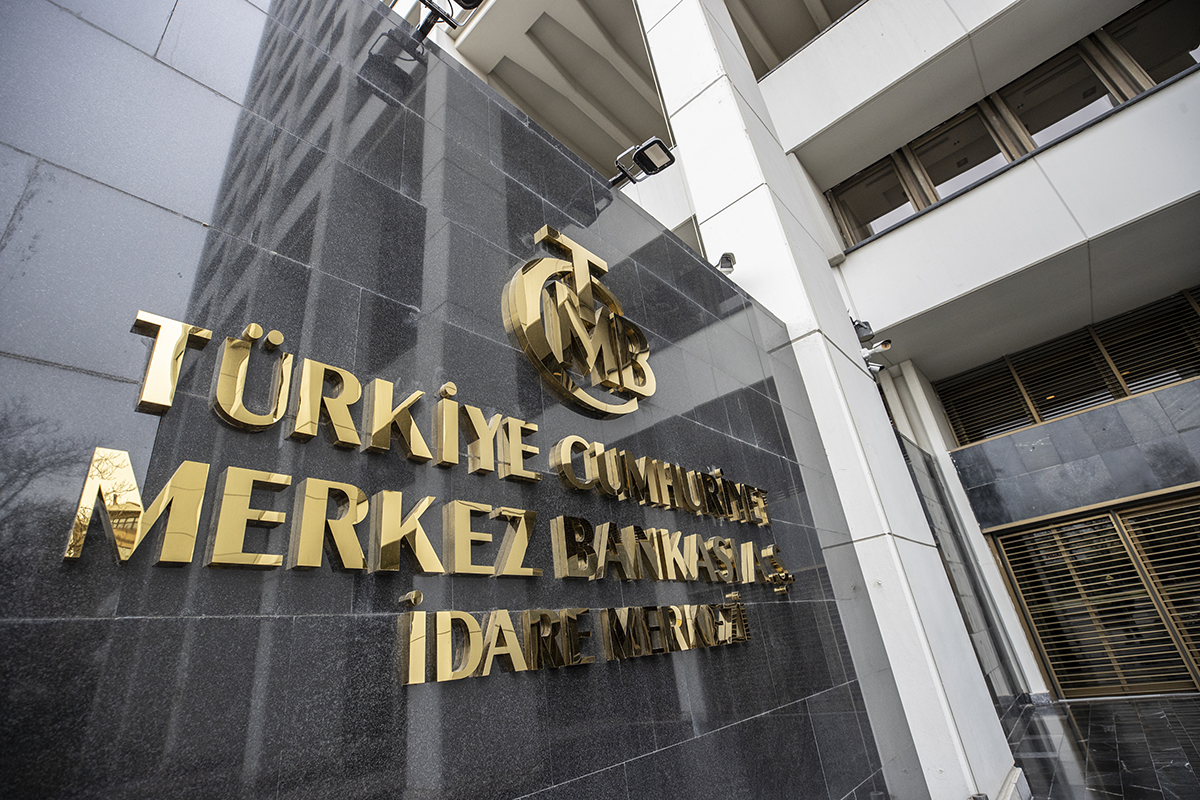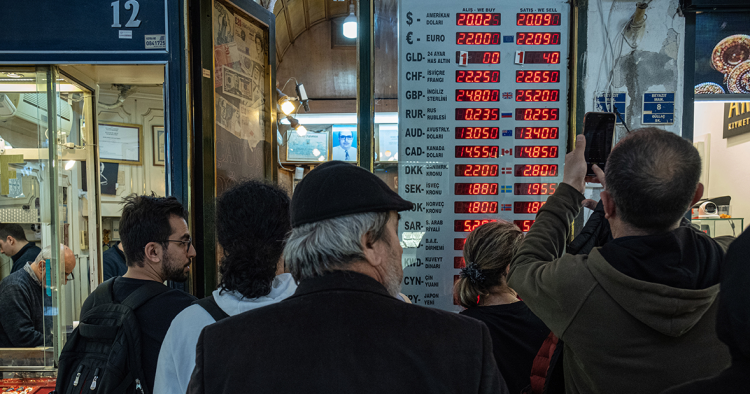This article is part of a longer report from MEI's Turkey Program on the upcoming Turkish presidential and parliamentary elections, Turkey's 2023 Elections: Perspectives on a Critical Vote.
As Turkey heads to the polls for presidential and parliamentary elections this month, the consequences for its troubled economy are likely to be significant and wide-ranging. Financial stability, business confidence, purchasing power, and asset prices all depend on whether President Recep Tayyip Erdoğan’s two-decade-long rule will continue; at the same time these factors will also determine his chances for re-election. Key economic stakeholders at home and abroad are hopeful, nervous, and uncertain about what will happen next. The government’s current economic policies are clearly unsustainable, but it retains considerable power to shape public perception through the media. There are a number of potential election outcomes that could lead to greater uncertainty and volatility rather than clarity and stability.
Uncertainty and instability
It is not long until the elections now and it is unlikely there will be a shocking crisis before the vote. Despite the country’s serious problems, the government has found a variety of ways to keep the economy afloat, including by using mega-projects, low interest rates, state-owned bank loans, taxes that target their opponents, social transfers, new external finance channels, and stricter currency market regulations. But skepticism among households and investors alike is at an all-time high.
Of total bank deposits, 40.4% are held in foreign exchange (FX) and gold accounts, while another 19.3% are in state-guaranteed accounts protecting against local currency depreciation. Most trade pricing is in hard currency. Even the government uses dollar or euro terms for its tenders. The 12-month foreign trade deficit is $120.4 billion, a record high. Properties and local currency-denominated bonds are already expensive. Time deposits are not attractive due to the low interest rates on offer. The crypto asset rally ended a long time ago and investing in international equity markets requires significant technical expertise.
Therefore, there is a high demand for anything denominated in hard currencies, provided the price is still reasonable. Because of the inflationary spiral, demand for consumer goods is strong. The Central Bank of the Republic of Turkey (CBRT) cannot implement contractionary monetary policies since Erdoğan’s unofficial mandate is to promote growth as much as possible. Under these circumstances, all players in the Turkish economy tend to hold FX-denominated or FX-protected assets. Furthermore, it is standard practice to keep assets abroad or under the pillow given the low trust in the financial system and government policies.
The CBRT has the responsibility of maintaining confidence; however, its FX and gold reserves, worth $114.9 billion, are not fully available for intervention. Net reserves excluding external liabilities, borrowing via swap agreements, and central government FX accounts are -$67.2 billion for the week ending on April 28. Recently, the CBRT started to sell its gold holdings indirectly to traditional jewelry stores and exchange offices in the Grand Bazaar. There are major question marks over financial stability and economic activity and any election result that has a thin margin of victory, leads to a compulsory run-off, or ushers in a divided government will have a swift and severe impact on financial and commercial markets.
The official inflation rate remains high, at 43.68%, and the real rate is likely to be even higher still. Unemployment is at 10.0% but comes to more than twice that — 23.4% — when using more realistic definitions. To sum up, people are extremely dissatisfied with the economic situation and trust in the government’s management is in short supply.

6 election scenarios
The results of the presidential election are the main factor shaping the future of the Turkish economy. How the state bureaucracy and foreign governments react will also be crucial. The composition of parliament and make-up of the majority will affect the new government’s ability to pursue reforms, and the local elections in March 2024 will be important for its continuity as well. The total number of deputies in parliament is 600. A minimum of 300 are needed to pass legislation, 360 can propose amendments for a referendum, and 400 can amend the constitution.
Recent polls suggest that the Nation Alliance candidate Kemal Kılıçdaroğlu is leading in the presidential race but that he will not have enough votes to be elected in the first round. Neither the ruling People’s Alliance nor the Nation Alliance is expected to have a majority in parliament; therefore, the Labor and Freedom Alliance, which is directly supporting Kılıçdaroğlu for now, will probably be the kingmakers. Voters in the earthquake zone, those residing abroad, and those eligible to vote for the first time could increase the margin of error in these polls, and ensuring an accurate ballot count will be a key issue as well.
There are three main alliances contesting the elections:
- Nation Alliance (Mİ): Made up of the “Table of Six” opposition parties and supports Kılıçdaroğlu
- People’s Alliance (Cİ): AKP is the leader of this alliance and supports Erdoğan
- Labor and Freedom Alliance (EÖİ): The pro-Kurdish Peoples’ Democratic Party (HDP), now under the Green Left Party (YSP) banner, is the leader of this alliance and supports Kılıçdaroğlu
There are six potential scenarios for the May presidential and parliamentary elections, each of which will have a different impact on the economy and prospects for reform.
Scenario 1: Kılıçdaroğlu wins in the 1st round. Mİ and EÖİ win a total of 360-400 deputies.
There will be a rapid and complete change in the senior management of key economic institutions. Inflation targeting will be the CBRT’s main mandate. Strong support in parliament and from the public will result in more determined investigations of corruption claims involving former managers. Currency markets will be stable and strict regulations will be eased rapidly. The Turkish lira may depreciate again until foreign deficits become sustainable; however, no more currency shocks will occur. Medium-term reforms and constitutional amendments will also be implemented. Both hot money (short-term speculative capital) and foreign direct investment (FDI) will flow into Turkey. No International Monetary Fund (IMF) agreement will be necessary.
Scenario 2: Kılıçdaroğlu wins in the 1st or 2nd round. Mİ and EÖİ win a total of 300-360 deputies.
There will be a quick but less radical change in the senior management of economic institutions. Inflation targeting will be the priority, but economic growth will also be pushed given the importance of the 2024 local election for maintaining political stability. Policy normalization will still result in the depreciation of the lira. There will be no need for IMF funds as hot money will come in, while FDI inflows will depend on the local election results. There will be a risk of stagnation as normalization policies will partially hurt the real sector. Foreign policy reforms will be more gradual. The fight against corruption will be intense, but there will be resistance in some parts of society because of polarization and the pro-Erdoğan judiciary.
Scenario 3: Kılıçdaroğlu wins in the 2nd round. Mİ and EÖİ win fewer than 300 deputies.
Investors and society will be skeptical about the potential for the government to work in harmony and last for more than a few years. There will be much less opportunity to amend the constitution or implement medium-term reforms. Gradual policy normalization will still result in more stable financial markets. However, the main mandate of the new government, and thus the economic institutions, will be to ensure victory in the 2024 local elections to continue wielding power. Some hot money flows will ease the pressure on the local currency, but this may dissipate before the local elections. There will be no need for IMF funding, but inflationary pressure will be sticky. A mild recession is possible due to the combination of policy normalization and uncertainty. Attempts to pursue corruption investigations could lead to more political dissociation among the public.
Scenario 4: Erdoğan wins in the 2nd round. Cİ wins fewer than 300 deputies.
Due to Erdoğan’s promise to maintain existing economic policies, the demand for hard currencies will jump and this will trigger a massive currency shock. Any attempt by Erdoğan to roll back his economic policies will only reduce the magnitude of the shock; regardless of who is in charge of the Treasury and the CBRT, the market will know he remains the final decision maker. Capital restrictions will become stricter and authoritarian social policies will be a must to implement them. There will be efforts to develop much closer relations with alternative sources of external finance. The long-delayed economic crisis will emerge as a severe recession.
Scenario 5: Erdoğan wins in the 1st round. Cİ wins a total of 300-360 deputies.
Erdoğan receives strong approval of his policies; therefore, the low-interest rate policy will continue and capital restrictions will be expanded to full-scale controls. Due to his renewed public support and an additional five-year term, he will try to secure new external financing by bargaining on foreign policy issues. Rapprochement with the West, particularly with the U.S., may be pursued in an effort to receive IMF loans. If that fails, a more determined and sharp change in the international political axis will be on the table. This transition process will be volatile and this uncertainty will result in greater poverty and more authoritarianism to preserve order. The magnitude and severity of the eventual expected recession will depend on how much foreign funding can be obtained.
Scenario 6: The elections are not successfully completed. Erdoğan keeps his post without legitimacy.
Due to chaotic events before, during, and after the second round of the elections, no candidate will be elected and Erdoğan will remain in charge as acting president. His control of the upper ranks of the bureaucracy and judiciary may enable him to wield power for a number of months until new elections can be held under more favorable conditions. However, business and consumer confidence will plummet, prompting citizens to keep their savings under the pillow. This will lead to hard capital and price controls not only in the financial sector but also in a variety of other industries, resulting in the emergence of a black market for basic goods. External debt redemptions may also be delayed via a temporary moratorium, due to a lack of FX liquidity. Financial instability, a sharp drop in production, and mass poverty could lead to widespread demonstrations. A state of emergency will be implemented and a vast exodus of capital and even consumer goods will occur. The Turkish economy will be in the state of a deep depression.
As outlined above, there are a wide range of possible outcomes for Turkey’s presidential and parliamentary elections, each of which will have a different impact on the economy and prospects for reform. How much will change after the May elections remains unclear, but what we do know is that Turkey’s economic status quo cannot be sustained. The economy will be at the top of the agenda for the new government for at least another year, until local elections are held in 2024.
M. Murat Kubilay is an independent financial advisor on the Turkish economy, a columnist in national media outlets in Turkey, and a Non-Resident Scholar with MEI’s Turkey Program.
Photo by Kerem Uzel/Bloomberg via Getty Images.
The Middle East Institute (MEI) is an independent, non-partisan, non-for-profit, educational organization. It does not engage in advocacy and its scholars’ opinions are their own. MEI welcomes financial donations, but retains sole editorial control over its work and its publications reflect only the authors’ views. For a listing of MEI donors, please click here.













